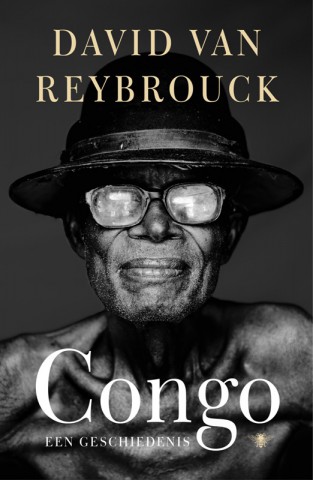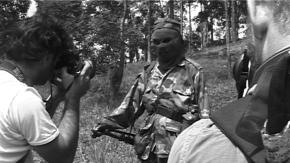In connection with The Marx Lounge, SMBA has organised an intensive public programme of reading circles, lectures, film screenings and artists’ presentations. Here you can read Andreas Zangger’s report of the Postcolonialism Reading Group of May 2nd. To read Jelle Bouwhuis’ report in Dutch click here.
Two artists on Congo
By Andreas Zangger
How do you present suffering in art? Laokoon (wikipedia)
How do Westerners see Congo, if they even look at all? What picture of Congo is presented to them? And what can art contribute to this picture? On Monday May 2nd SMBA hosted the reading group on postcolonialism organized by artist Joris Lindhout to discuss the book Congo – Een geschiedenis (Congo – A history, 2010) by David van Reybrouck and the film Episode III – Enjoy poverty (2008) by Renzo Martens, who was invited as an artist expert.
Reybrouck’s acclaimed history of the Congo reaches a wide audience, especially by its style that is rather artistic instead of academic. The author’s intention was to let voices of Congolese people be heard, and therefore he collected stories while travelling around Congo. The outcome is a beautifully composed and catchy, but also very tame story. It blanks out atrocities of the West in the African country and hides crucial power relations. One can eventually conclude that the stories of the Congolese were just fitted in Reybroucks plot that tries to reconcile political players. The Congolese voices were thus again colonially exploited – so to speak.
Renzo Martens criticizes the lack of self-reflection of Reybrouck. Unlike Reybrouck, Martens calls artists to think about their position as Westerners in a post-colonial country. His sarcastic documentary film focuses on the production of images of poverty in Congo. Martens travelled in Congo too and filmed Congolese people. But unlike Reybrouck he does not claim to bring their voice forward. He argues that Westerners should focus on their influence and responsibility. Martens’ film is an ironic and bitter critique of the production of images of Africa and the beneficiaries of the ‘industry of suffering’.
Reybroucks exploitation of the Congolese stories and Martens abstinence seem to conclude that Westerners should not speak for the Congolese. But how can the voices of the ‘subaltern’ then be heard in the West? Is it possible to go beyond colonial discourses and let the ‘subaltern’ speak and become part of a dialogue? The reading group will continue to discuss colonialism reading a range of postcolonial thinkers like Spivak, Achebe, Bhabha, etc., partly hosted by SMBA in the framework of Project ‘1975’, partly by W139 in the framework of a series of reading groups organized by Lindhout.


